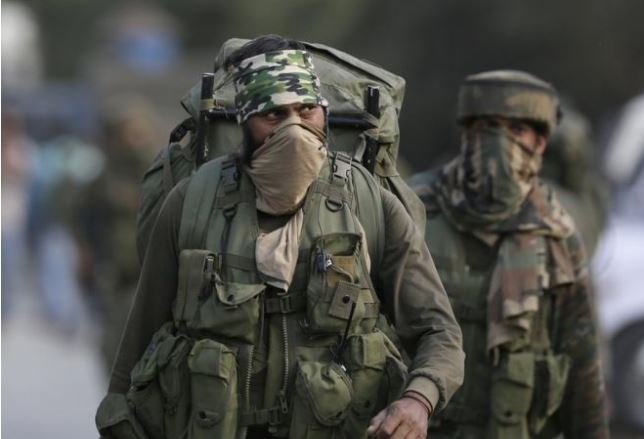India and Pakistan are at it again.
The South Asian rivals are locked in another escalating confrontation over Kashmir, the ruggedly beautiful Himalayan territory they have tussled over for seven decades.
The countries have fought two wars over Kashmir, but the prospect of fresh hostilities is particularly worrisome because both now have nuclear weapons. Here's a look at the conflict and what could happen next.
What triggered the current crisis?
Tensions reached their highest point in years after four anti-India militants raided an army base inside the Indian-controlled portion of Kashmir on Sept. 18, killing 19 soldiers. India said the attackers came from Pakistan, which denied involvement.
India responded to the attack nine days later by sending commandos to strike militant outposts a short distance inside the Pakistani-administered part of Kashmir. Although the countries regularly trade fire across the border in contravention of a decades-old cease-fire, this was the first time India publicly acknowledged such a strike.
In recent days, India has accused Pakistan of violating the cease-fire more than two dozen times. On Thursday the Indian army said it killed three militants who fired on another military camp and four others attempting to cross into Indian-controlled Kashmir.
How old is this fight?
Even before India and Pakistan won their independence from Britain in August 1947, Kashmir was hotly contested.
Under the partition plan provided by the Indian Independence Act, Kashmir was free to accede to India or Pakistan.
The maharaja (local ruler), Hari Singh, chose India and a two-year war erupted in 1947.
A new war followed in 1965, while in 1999 India fought a brief but bitter conflict with Pakistani-backed forces.
By that time, India and Pakistan had both declared themselves to be nuclear powers.
Why so much unrest inside the Indian part?
Many people in the territory do not want it to be governed by India, preferring instead either independence or union with Pakistan.
The population of the Indian-administered state of Jammu and Kashmir is more than 60% Muslim, making it the only state within India where Muslims are in the majority.
High unemployment and complaints of heavy-handed tactics by security forces battling street protesters and fighting insurgents have aggravated the problem.
